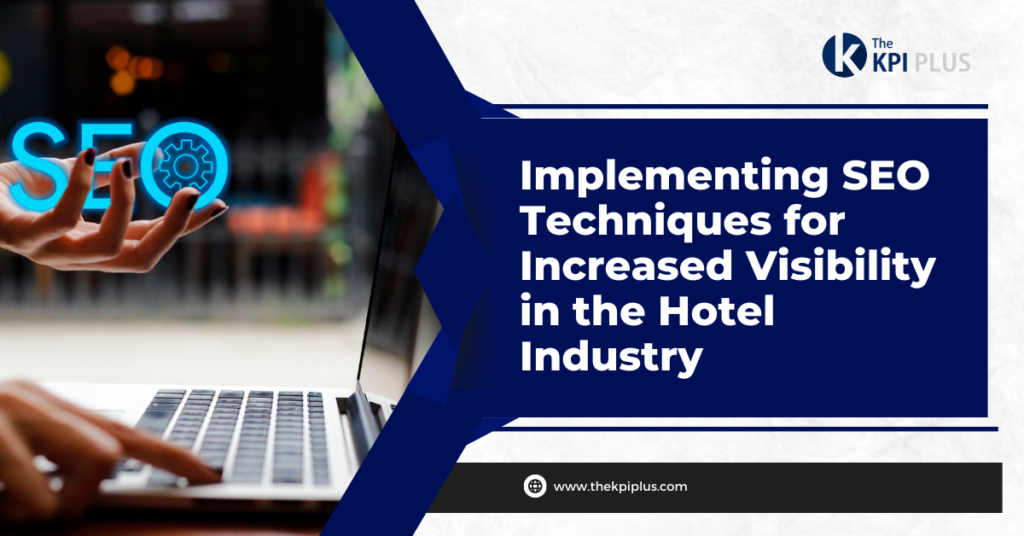In today’s digital-first world, the hotel industry is more competitive than ever. Achieving visibility online has become paramount for hotels looking to attract guests and increase bookings. One of the most effective strategies to achieve this goal is through Search Engine Optimization (SEO). Implementing well-thought-out SEO techniques can significantly enhance your hotel’s online presence, making it more visible to potential guests. This comprehensive guide will delve into how hotels can leverage SEO to stand out in the crowded online marketplace.
Introduction to SEO in the Hotel Industry

SEO is the art and science of improving your website’s ranking in search engine results pages (SERPs) for relevant queries. The higher your site ranks, the more visible it is to potential customers. For hotels, this means appearing at the top of the results when someone searches for accommodation options in your area. SEO encompasses a range of strategies, from keyword optimization to improving site performance, all aimed at making your site more attractive to search engines like Google.
Conducting In-depth Keyword Research
The first step in any SEO campaign is to identify the keywords your potential guests are using in their searches. This involves thorough research to find terms related to your hotel’s location, amenities, and unique selling points. Tools such as Google Keyword Planner and SEMrush can provide insights into search volumes and competition levels for various keywords. Remember, it’s not just about the most searched terms but finding the right balance between search volume and competitiveness. Consider long-tail keywords, which are longer, more specific phrases that may have lower search volumes but higher conversion rates.
Crafting High-Quality, Engaging Content

Content is king in the world of SEO. Your website should offer valuable, engaging content that incorporates your target keywords naturally. This could include detailed descriptions of your rooms and facilities, blog posts about local attractions, or guides on the best times to visit your area. However, avoid keyword stuffing, as this can negatively impact your SEO efforts. Instead, focus on creating content that enhances the user experience and provides real value to your readers.
Enhancing User Experience (UX)

User experience (UX) plays a crucial role in SEO. Google’s algorithms favor websites that provide a seamless, enjoyable experience for visitors. This includes fast load times, mobile responsiveness, intuitive navigation, and high-quality images and videos. Regularly auditing your site to identify and fix any UX issues can have a positive impact on your SEO rankings and help reduce bounce rates.
Implementing Local SEO Strategies
For hotels, local SEO is vital. You want to appear prominently when people search for accommodation in your area. Ensure your hotel is listed on Google My Business and other local directories. Optimize your listings with accurate details, high-quality photos, and your target keywords. Encourage happy guests to leave positive reviews, as these can boost your local SEO rankings and influence potential customers’ decisions.
Building and Managing Online Reputation
Your online reputation directly influences your SEO success. Positive reviews and ratings can enhance your visibility in local search results. Actively manage your online reputation by responding to reviews, addressing any negative feedback, and encouraging satisfied guests to share their experiences online. This not only boosts your SEO but also builds trust with potential guests.
Acquiring Quality Backlinks

Backlinks are links from other websites to your site. They signal to search engines that others value your content, which can boost your SEO rankings. Aim to acquire backlinks from reputable sites in the travel industry, local businesses, and travel blogs. You can do this by creating shareable content, engaging in local community events, or offering to write guest posts for relevant sites.
Monitoring and Adapting Your SEO Strategy

SEO is not a one-time effort but an ongoing process. Regularly monitor your site’s performance using tools like Google Analytics and Google Search Console. Look at metrics such as organic traffic, bounce rate, and conversion rate to understand how well your SEO efforts are performing. Be prepared to adjust your strategy based on these insights. SEO trends and algorithms change frequently, so staying informed and adaptable is key.
SEO is an essential tool for hotels looking to increase their visibility and attract more guests in the digital age. By focusing on keyword research, content quality, user experience, local SEO, online reputation, and backlinks, you can improve your hotel’s search engine rankings and stand out in a competitive market. Remember, successful SEO requires patience, persistence, and a willingness to adapt to new trends and algorithm updates. With the right approach, SEO can drive significant improvements in your hotel’s online presence and booking rates.










